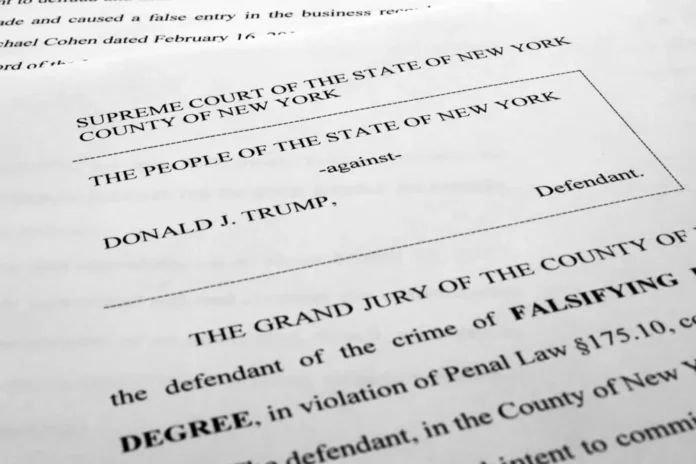
The criminal charges that Donald Trump is now facing in New York stem from three separate instances in which the former president and his associates are accused of making hush money payments during his 2016 campaign: to two women to suppress information about extramarital sexual encounters they said they had with years earlier, and to a onetime Trump Tower doorman who claimed to have a story about a child he alleged Trump had out of wedlock.
Trump has been charged with 34 felony counts of falsifying business records. He surrendered earlier Tuesday in Manhattan and pleaded not guilty to all charges.
A look at the three cases cited by Manhattan District Attorney Alvin Bragg, who outlined the charges:
TRUMP TOWER DOORMAN
Bragg first listed the incident involving a former Trump Tower doorman who was paid $30,000 after he claimed he had information about a child who Trump had out of wedlock. That doorman, Dino Sajudin, received the payment from the parent company of the National Enquirer in exchange for signing over the rights, “in perpetuity,” to a rumor that the president had fathered a child with an employee at Trump World Tower, a skyscraper he owns near the United Nations.
The contract between Sajudin and the American Media Inc. would penalize Sajudin for $1 million if he disclosed either the rumor or the terms of his agreement with the tabloid’s parent company. In an interview with The Associated Press in August 2017, the woman at the center of the rumor denied that she had had an affair with Trump.
The prosecutor also cited the case of Karen McDougal, a former Playboy model who received $150,000 from American Media after claiming she had a 10-month affair with Trump in the mid-2000s. The money was to gain the rights to McDougal’s story but to never run it — a practice known as “catch and kill.” The National Enquirer’s parent company has acknowledged that the payments were done specifically to help Trump’s presidential campaign.
Bragg said Trump “explicitly” directed lawyer Michael Cohen, then working for the Trump Organization, to reimburse American Media in cash, then Cohen indicated to Trump that the payment should be made instead by a shell company. The alleged relationship between McDougal and Trump remained concealed until a Wall Street Journal report days before Election Day in 2016. Trump has denied her allegation.
STORMY DANIELS:
The third case involves the porn actor Stormy Daniels, who was paid $130,000 in exchange for her silence about a sexual encounter with Trump at Lake Tahoe, Nevada, in 2006. Trump has denied the encounter.
Bragg said that 12 days before the election on November 8, 2016, Cohen had wired $130,000 to Daniels’ lawyer by using a shell corporation funded through a Manhattan bank. Daniels, whose real name is Stephanie Clifford, was paid after indicating she was willing to speak to either the National Enquirer or on television confirming the encounter.
Trump insisted to reporters on Air Force One in April 2018 that he didn’t know about the payment made to Daniels through Cohen. But Bragg said Tuesday that Trump reimbursed Cohen after his 2016 victory with money from two sources: a trust that held the Trump Organization’s assets and from his personal bank account.
Republished with the permission of The Associated Press.













